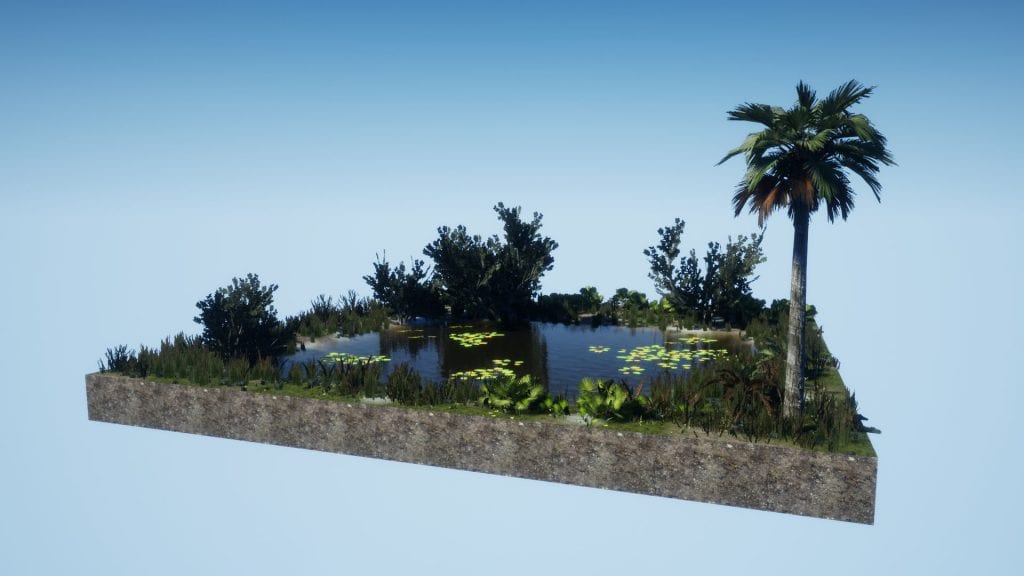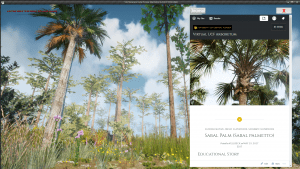Virtual UCF Arboretum Expands Offerings For Digital Game Designers

The Virtual UCF Arboretum continues to expand its reach and impact, with the recent launch of a new library of 70 photorealistic plants for use in augmented and virtual reality.
The free-to-use content pack of 3D plants on the Epic Games Unreal Engine Marketplace follows last year’s $25,000 Epic Megagrant from the same game maker, arguably most famous for the popular Fortnite. Like those used in the original Virtual UCF Arboretum, the digital recreations of plants from Florida to Maine are faithful reproductions thoroughly vetted and approved by botanists and ecologists for correct plant morphology.
 Not only can game developers enhance the realism of their environments with high information fidelity in their individual plants, but the brush option allows them to reproduce acres of ecosystems quickly and accurately.
Not only can game developers enhance the realism of their environments with high information fidelity in their individual plants, but the brush option allows them to reproduce acres of ecosystems quickly and accurately.
“These are not just photorealistic virtual copies, but now they’re in the correct context,” Harrington explained. “This avoids filling your world with generic trees or accurate trees but in the wrong locations, combinations or densities.”
Harrington’s first project, the Virtual UCF Arboretum, is the first of its kind to visualize GIS data of native plants and flowers in 100 hectares (247 acres) of Central Florida terrain. Users can tour a highly accurate reproduction of the real UCF Arboretum on their desktop computers or experience a fully immersive digital getaway with virtual reality equipment.
The Harrington Lab’s project is a perfect example of big ideas outpacing available technology. The path to the 2021 arboretum began with Harrington’s third-grade shoebox diorama.
“Imagine you’re set down inside that diorama. You have the freedom to experience the world in any direction you want. That’s what I wanted to recreate: that feeling of freedom to explore the world and to learn directly from the environment,” Harrington said.
Virtual reality worlds are hardly unique in 2021. Roughly 14 million augmented and virtual reality devices were sold in 2019, and the market is expected to grow to $209.2 billion by 2022, according to techjury.net. What’s different about Harrington’s virtual arboretum traces back to her second inspiration for the project.
As Ph.D. student and a parent volunteer with her daughter’s class on a field trip, “I saw this wonder triggered by the beauty of the natural world,” Harrington said. “There were all these spontaneous questions. I wanted to recreate that powerful informal learning experience with virtual reality.”
To blend the accessibility of video games and an educational experience, Harrington knew her virtual creation would have to be a faithful reproduction of the original. Extensive consultation with botanists made that possible. Today, visitors to the Virtual UCF Arboretum can enjoy not just a relaxing getaway, but interact with notes and stories on the plants they’re seeing.
The Harrington Lab next plans to expand its library from plants of the Eastern Seaboard to the rest of the country and, eventually, the globe.
“I’m convinced that this is something that can transform the world,” Harrington said. “I want people to learn any time and anywhere.”
